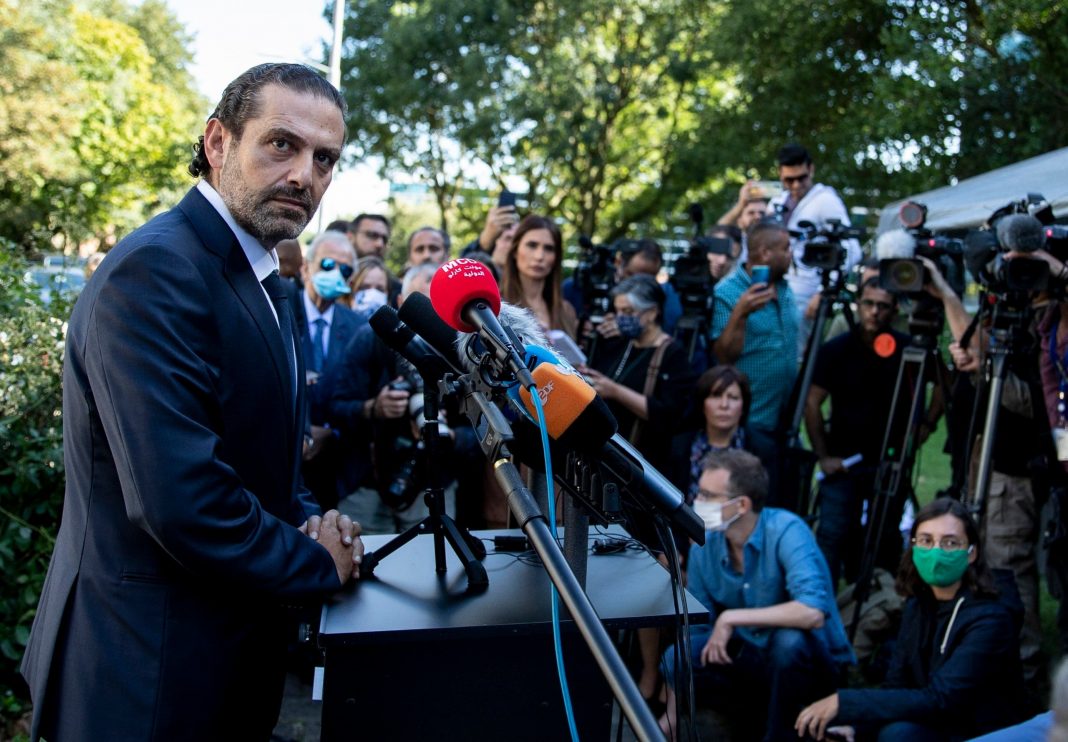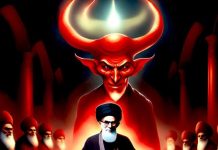Saad Hariri’s return benefits Hezbollah – he must be held accountable
Hanin Ghaddar/Al Arabiya/October 26/2020
حنين غدار: عودة سعد الحريري لرئاسة مجلس الوزراء هي لمصلحة حزب الله ومن هنا عليه أن يتحمل المسؤولية ويحاسب
One year after mass protests pushed him to resign, Saad Hariri is back as Lebanon’s prime minister-designate, nominated by 65 out of 128 members of parliament.
Although Hezbollah did not specifically nominate him as prime minister, it was clear that the group supported his designation and worked with most of their allies to secure his nomination, and to make sure he understands Hezbollah’s sway over his efforts to form a government.
Named last Thursday, Hariri pledged to swiftly create a government of experts not affiliated to the country’s traditional political parties, calling it Lebanon’s “only and last chance.” He also said that he would form “a government of non-partisan specialists, whose mission is to implement the economic, financial and administrative reforms contained in the French initiative paper.”
But Hariri himself is part of the old political system, and was named and supported by the same traditional political parties that he claims he wants to fight. So what gives? How will Hariri’s fourth premiership be any different? And should the international community trust these claims?
In addition to his intricate partnership and alliances with major political parties, Hariri also faces major challenges to be able to form a government that must address a long list of financial issues, such as the banking crisis, the collapse of the local currency, the high rates of poverty, and the inflation of government debt. Hariri’s government will also have to deal with the rise in COVID-19 infections and the financial and humanitarian repercussions of the August 4 explosion at Beirut port.
But most importantly, Hariri will have to address other issues that have been the focus of the international community – particularly the Hezbollah arms, precision missiles, and the group’s resources in Lebanon.
As a prime minister, Hariri cannot avoid Hezbollah’s access to illegal border crossings, smuggling, airport and border control, and the locations of the precision missiles facilities that were recently outed by the Israeli government and defense forces.
As for corruption, Hariri will have to address a specific list of reforms that were clearly requested by the CEDRE conference, the International Monetary Fund (IMF), and the World Bank. Without implementing these reforms, aid packages will not be sent to bail out Lebanon, and the financial crisis that Lebanon is facing will not be resolved. All that Hariri cam do, without implementing reforms, is to facilitate some humanitarian aid for the needy in Lebanon.
The main question today is whether Hariri can deliver or not. All indication say that Hariri – being the preferred candidate of the political class, including Hezbollah – will not work against the interests of this elite and their corrupt channels. Hezbollah and its allies would not have supported his premiership if they did not have guarantees that he would protect their interests. It would be very hard to imagine that Hariri would fight the corruption of those who supported him, or stop Hezbollah’s access to the state institutions and border crossings.
But Hariri can sell the illusion that he can fight the corruption, hoping that he will get French backing, and eventually US backing – that is if a new Biden administration takes over in 2021. He would at least be able to reduce the pressure on himself and the political elite in Lebanon, but he won’t be able to sell this illusion to those holding the bailout money.
The CEDRE, IMF and World Bank will still require reforms. Meanwhile, the Lebanese people’s suffering will continue and the financial crisis will only worsen, moving Lebanon further into the Iranian club, where the power of Iran’s proxies is prioritized over people’s basic needs.
As for Hezbollah, although their strategic patience is becoming harder to maintain, they would rather wait for a new Iran deal than give up power, even if takes years.
Eventually, they will resume receiving US dollars from Iran, and with a severe shortage of dollars in Lebanon, this will make their position, power, and access stronger. With Hariri as PM – as we have seen in his previous term as PM – Hezbollah’s power over him and the rest of the state institutions would only increase.
Therefore, it is crucial for the international community to avoid the Hariri illusion, and make sure that he is held accountable while he is forming the government, not afterwards.
Therefore, sanctions on Hezbollah’s allies should continue, despite the fact that they agreed to resume the maritime border negotiations, and using the congressional Magnitsky Act to target corrupt politicians as soon as possible would be crucial to insure both the corrupt political class and Hezbollah do not get away with their plan of buying time and enforcing the status quo.
*Hanin Ghaddar is the Friedmann Fellow at The Washington Institute’s Geduld Program on Arab Politics, where she focuses on Shia politics throughout the Levant.



















